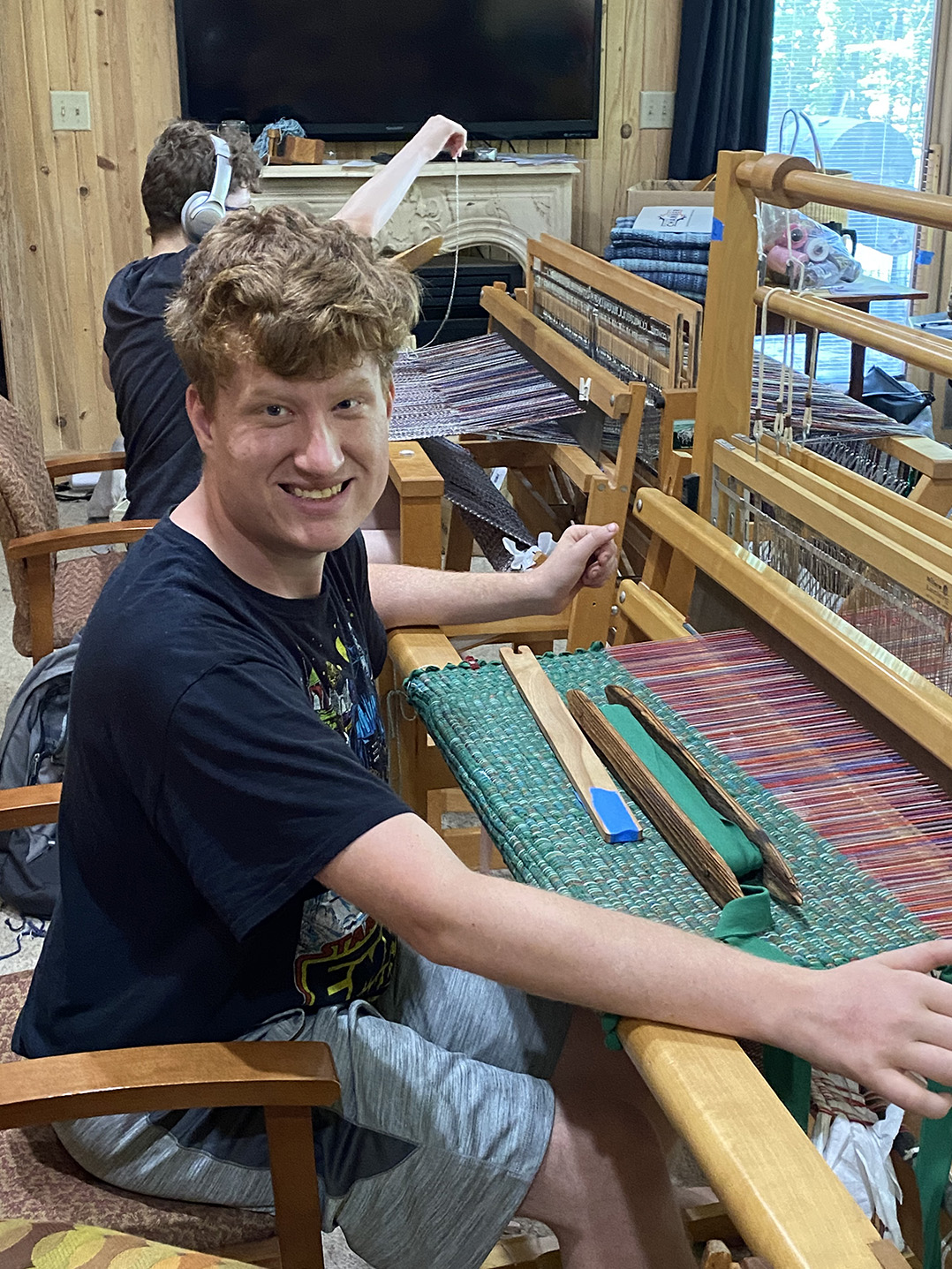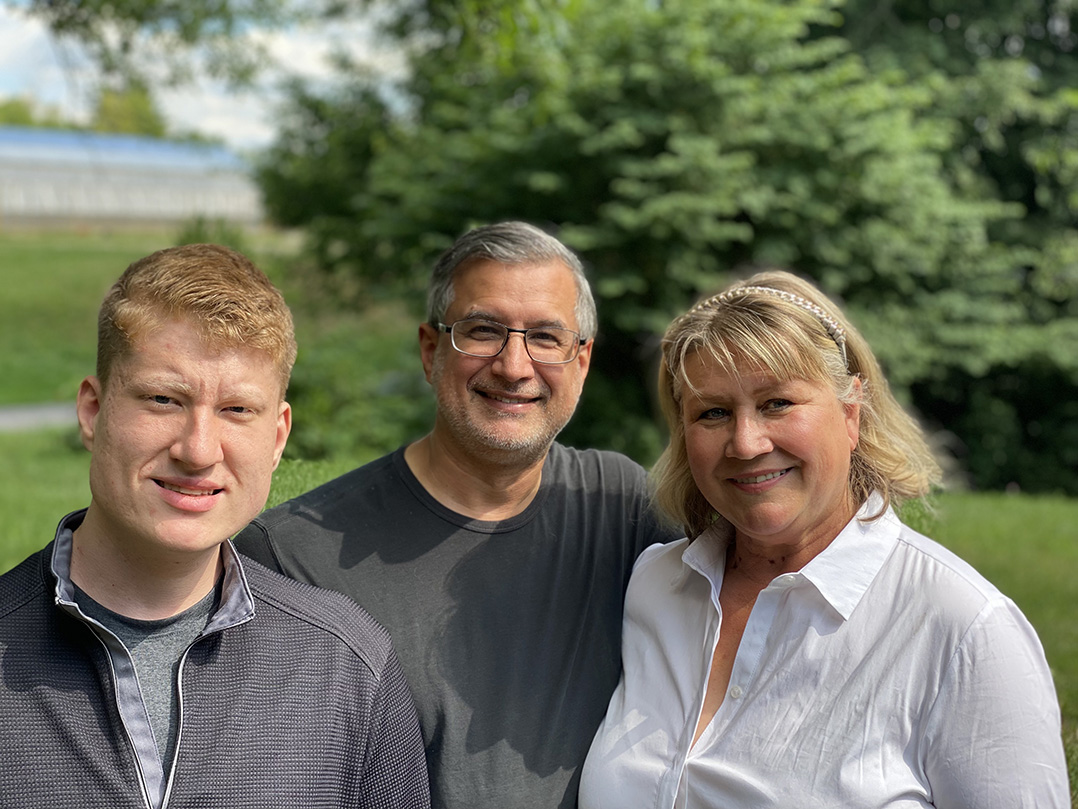Zionsville residents David and Janice Agarwal are 58 and 60 years old. Their son, Alex, is 22.
They said they worry about their son’s relationships, employment and well-being.
But they said they worry most about what he will do when they die.
“If Janice and I died today, I do not know what would happen to my son,” David said.
Alex has Prader-Willi syndrome, a genetic disorder. He is classified as an adult with intellectual or developmental disability, or IDD.
In a state where approximately 100,000 individuals are registered as intellectually or developmentally disabled, Alex is one of many Hoosiers whose future is uncertain when his caregivers die.
For the caregivers, the question of their own mortality is never far from mind.
“We live in fear,” Janice said. “We live in fear every day.”
Parents and advocates of adults with IDD say the issue of aging caregivers is not going away, and the burden cannot fall on families alone.
Janice said communities like Zionsville should serve as pilot programs for creating supportive communities for adults with IDD, drawing assistance from the state, nonprofit organizations and individuals instead of relying only on caregivers.
Janice advocates through her nonprofit organization, Watch Us Farm, which provides sustainable employment opportunities for adults with IDD. She said the adults need alternatives to staying at home with their parents around the clock after they age out of the school system.
“When you have a child with special needs, the first thing you’re doing is, ‘How can I get them through high school?’” Janice said. “The problem with that is, after high school, what happens?”
Zionsville resident Deb Easterday, also a parent of an adult with IDD, said another problem to address is the often-confusing government aid programs that prevent people who need assistance from receiving it or even knowing it exists.
“The problem is dealing with the bureaucracy,” she said.” “Tom (her husband) and I are lawyers, and I’m telling you, there are times we sit there and look at each other and say, ‘How do (non-lawyers) go through this morass?’”
Tom Easterday said Indiana lawmakers must act to make aid available to a greater number of families who need it.
“There needs to be more flexibility under the waivers that are offered in the state of Indiana,” he said. “The flexibility for the Medicaid waivers is a tremendous help for parents that can’t otherwise self-pay for those support services.”
The Easterdays run the Zionsville nonprofit Independent Living for Adults with Developmental/Intellectual Disabilities, with Tom serving as president and Deb a committee member.
Deb Easterday said grants are the most effective way for the government to support adults with IDD and make close-knit neurodiverse communities a reality.
“We’re talking supports without mandates, and I think that’s really the bottom line, and that’s really the key,” she said. “A lot of times, when the government gets involved, they want to throw the money at it, but they want it to be their special program, as opposed to providing grants and/or money for different options.”
The Agarwals and the Easterdays both say options are what adults with IDD need to thrive. Support cannot take only one form, they say, and the beneficiaries must be able to choose where to live, work and socialize.
“We all want that for every one of our kids, and just because they have special needs does not mean that should end,” Janice said.
Janice said people should start treating IDD like they approach mental health, with less stigma and more willingness to speak openly about it. She said cities and towns like Zionsville can improve the support networks for adults with IDD if they seize the opportunity.
“We need to be looking down the road,” Janice said. “What we’re trying to do is start looking generations down. If we’re going to build housing, if we’re going to build a community, we want to think about not just our kid but the next kid and the next kid.”

About Watch Us Farm
Zionsville residents Janice and David Agarwal operate Watch Us Farm, a nonprofit that employs adults with intellectual or developmental disabilities.
On the farm, adults try out gardening, handmake crafts and design greeting cards, among other job options available to them.
Janice said she and her husband plan to add housing to Watch Us Farm in the future, which would solve the common problem of transportation, give the adults a social network and help them live semi-independently.
“We’re trying to provide those jobs for these kids that actually can have jobs. They just need a different environment,” she said. “It looks a little different but they’re amazingly talented.”





